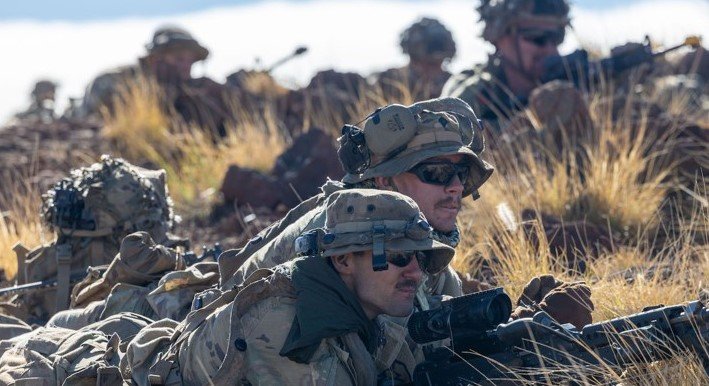Israeli soldiers have shared shocking accounts in a new documentary about firing on Gaza civilians without clear threats. The film, Breaking Ranks: Inside Israels War, aired on ITV in the UK on November 10, 2025, and highlights a breakdown in military rules during the ongoing conflict.
Soldiers Describe Unprovoked Attacks
One tank commander, known as Daniel, explained how troops could shoot freely in Gaza. He said the usual checks for danger often got ignored. This led to quick decisions that put lives at risk.
Another officer, Captain Yotam Vilk, talked about the old training rule of means, intent, and ability before firing. In Gaza, he claimed, that rule vanished. Soldiers based shots on vague suspicions, like a persons age or walking speed.

The documentary includes stories from both anonymous and named soldiers. They all point to a loss of control on the ground. This comes amid reports of over 40,000 deaths in Gaza since the war started in 2023, according to health officials there.
Use of Human Shields Confirmed
Soldiers in the film admitted to using Palestinians as human shields, despite official denials from the Israeli military. This practice involves forcing civilians to check for dangers ahead of troops.
One account described troops making locals walk into risky areas to spot traps. This violates international laws on war conduct. Human rights groups have long accused Israel of such tactics, and these testimonies add fresh evidence.
Experts say this fits a pattern seen in past conflicts. A 2025 report from a United Nations panel noted similar issues, calling for investigations into possible war crimes.
The soldiers spoke out to highlight ethical failures. They hope their words spark change in how the military operates.
Arbitrary Rules on Who Counts as Enemy
Testimonies reveal how officers decided on the spot who seemed like a threat. Walking too fast or too slow could mark someone as suspicious. Groups of men got labeled as military formations without proof.
- Soldiers reported firing on people near food aid points, even when they posed no danger.
- One incident involved a man hanging laundry, mistaken for a spotter and targeted.
- Age played a big role; men between 20 and 40 often faced automatic suspicion.
These choices led to needless deaths, soldiers said. They described a chaotic environment where personal judgment overruled guidelines.
In one case, a building in a safe zone got destroyed because an officer thought a resident looked wrong. This shows how loose rules endangered civilians.
A table below outlines key differences between official rules and reported practices:
| Official IDF Guideline | Reported Practice in Gaza |
|---|---|
| Fire only if means, intent, and ability to harm exist | Suspicion based on age or movement alone |
| Protect civilians in safe zones | Attacks on buildings with people inside |
| Avoid human shields | Routine use to check for dangers |
Impact on Civilians and Aid Efforts
Civilians racing for food at aid points often faced gunfire, according to the film. Troops shot without warning, turning help zones into danger spots.
This ties into broader issues like starvation claims. A 2025 study found Israel restricted aid, worsening hunger for over two million people in Gaza.
Soldiers felt the weight of these actions. Some now deal with guilt and call for accountability. Their stories match reports from groups like Amnesty International, which documented similar events in 2024 and 2025.
The war, now in its third year, has displaced most of Gazas population. Recent events, like a July 2025 aid convoy attack, echo the documentaries claims.
Global Reactions and Calls for Probes
World leaders have reacted strongly to the documentary. The UK government urged Israel to investigate the claims. Human rights advocates demand independent probes.
In the US, some lawmakers pushed for aid conditions tied to better conduct. This follows a 2025 International Court of Justice ruling on possible genocide risks in Gaza.
- Protests erupted in cities like London and New York after the films release.
- Online discussions on platforms like Twitter exploded with debates on military ethics.
- Experts predict more soldiers may come forward, inspired by these testimonies.
The film could shift public views on the conflict. It aired amid talks of a possible ceasefire, stalled since early 2025.
What This Means for the Future
These revelations raise questions about oversight in wartime. Soldiers hope their words lead to reforms in the IDF.
Analysts say without change, trust in the military could erode further. The conflict has already strained relations between Israel and allies.
As a reader, share this article if it moved you, and comment below with your thoughts on how to address these issues.
